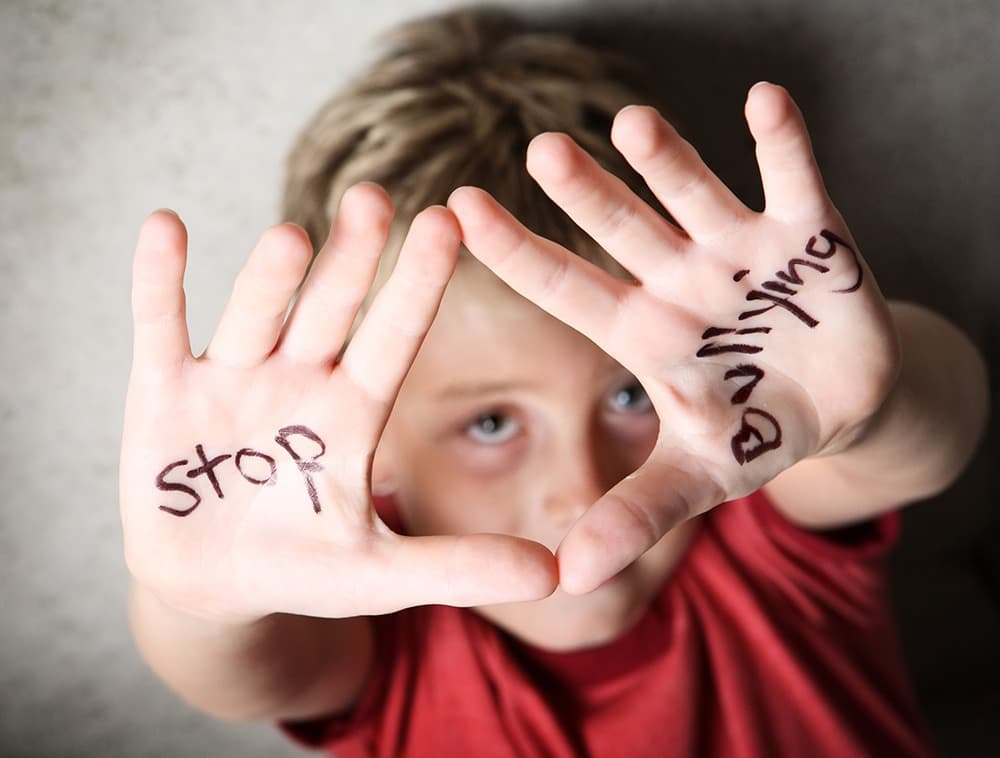Top Psychologists Near Me for Bullying Counselling
Bullying Counselling: Overcoming Challenges and Finding Support
Experiencing bullying can deeply affect one’s mental and emotional health. At Medavas, we recognize the hurt and loneliness that often accompany being bullied. Our counselling services offer a safe and supportive environment where individuals can open up, heal, and rebuild their self-confidence. With the help of our skilled professionals, we guide you in developing resilience and effective coping mechanisms to face bullying challenges. Whether it’s bullying at school, in the workplace, or online, we are here to support you and help you find the strength to move forward.
Table of Contents
ToggleWhat is Bullying?
Bullying refers to deliberate, aggressive actions aimed at exerting control or dominance over another person, often through a perceived power imbalance. It is typically repetitive and aimed at causing harm, whether physically, emotionally, or socially. Bullying can occur across different age groups and settings, including schools, workplaces, and online environments. Victims of bullying often feel powerless and isolated, making it essential to address this issue promptly and effectively.

Types of Bullying
Bullying can take many forms, each affecting the victim in unique ways:
Verbal Bullying
This involves the use of language to belittle, demean, or intimidate someone. Examples include:
- Name-calling
- Threats and intimidation
- Teasing or taunting
- Hurtful comments about appearance, abilities, or background
Physical Bullying
Physical bullying involves direct physical aggression, such as:
- Hitting, punching, or slapping
- Pushing or shoving
- Damaging personal belongings
- Tripping or other forms of physical harassment
Indirect Bullying
Indirect bullying is less overt but equally damaging. It includes:
- Spreading rumors
- Excluding someone from social activities
- Encouraging others to ostracize the victim
Cyberbullying
Cyberbullying takes place on digital platforms like social media, email, or messaging apps, involving harmful actions meant to intimidate or humiliate others. Examples include:
- Sending threatening or hurtful messages
- Sharing private information without consent
- Posting embarrassing photos or videos
- Creating fake profiles to harass individuals
Workplace Bullying
Workplace bullying involves repeated, harmful behaviors in professional settings. Examples include:
- Micromanagement or excessive criticism
- Exclusion from important projects or meetings
- Overburdening with unrealistic deadlines
- Spreading gossip or undermining credibility

Signs & Symptoms of Bullying
Recognizing the signs of bullying can lead to timely intervention. Common indicators include:
- Physical injuries, such as bruises or cuts
- Avoidance of school, work, or social situations
- Sudden drop in academic or professional performance
- Changes in mood, such as increased anxiety or depression
- Withdrawal from friends and family
- Sleep disturbances or frequent nightmares

Causes, Issues, and Challenges of Bullying
Understanding the underlying factors and challenges of bullying is crucial for effective intervention.
Causes
Bullying behaviors often stem from:
- A desire for power or control
- Exposure to aggression or violence at home
- Peer pressure
- Low self-esteem in the bully
Issues
Bullying creates a toxic environment, leading to:
- Loss of trust among peers or colleagues
- Fear and anxiety in victims
- Difficulty maintaining relationships
Challenges
Victims of bullying face several challenges, such as:
- Fear of retaliation if they report the bullying
- Feelings of shame or self-blame
- Lack of support from authority figures

How Bullying Affects Mental Health
The impact of bullying extends beyond immediate harm, often leading to long-term mental health issues:
- Increased risk of anxiety and depression
- Development of post-traumatic stress disorder (PTSD)
- Lower self-esteem and self-worth
- Difficulty concentrating or focusing
- Suicidal thoughts or behaviors in extreme cases
How to Deal with Bullying
Addressing bullying requires a proactive approach:
Steps to Address Bullying
- Acknowledge the Problem: Recognize that bullying is harmful and unacceptable.
- Seek Support: Share your experiences with trusted friends, family, or professionals.
- Document Incidents: Record details of bullying incidents, including dates and witnesses.
- Set Boundaries: Clearly communicate that the behavior is unacceptable.
- Report the Behavior: Inform teachers, HR departments, or other authorities.

Treatment of Bullying
Comprehensive treatment aims to address and mend the emotional and psychological scars left by bullying, fostering resilience and recovery. Common therapeutic approaches include:
Cognitive Behavioral Therapy (CBT)
CBT helps individuals identify and change negative thought patterns. It equips victims with tools to:
- Manage anxiety and stress
- Build resilience and self-confidence
- Develop assertive communication skills
Group Therapy
Group therapy fosters a sense of belonging and provides:
- A safe space to share experiences
- Peer support and encouragement
- Collective strategies to cope with bullying
Art Therapy
Art therapy allows victims to express emotions creatively, helping them:
- Process trauma
- Rebuild self-esteem
- Develop new coping mechanisms
Self-Help Tips for Bullying
Empowering yourself with self-help strategies can aid recovery:
- Practice Self-Care: Engage in activities that promote physical and mental well-being, such as exercise, meditation, or hobbies.
- Build Resilience: Focus on personal strengths and achievements.
- Create a Support Network: Surround yourself with positive and supportive individuals.
- Avoid Engagement: Refrain from retaliating or engaging with bullies.
- Develop Assertiveness: Learn to stand up for yourself in a calm and confident manner.
Why Seek Professional Help
Seeking professional assistance can make a significant difference in overcoming the effects of bullying. Benefits include:
- Expert Guidance: Therapists offer tailored strategies to manage and overcome bullying.
- Emotional Support: A safe and non-judgmental environment to discuss experiences.
- Practical Tools: Techniques to rebuild confidence and resilience.

Benefits of Online Counselling for Bullying
Virtual counselling offers an accessible and personalized approach to tackling issues related to bullying, empowering individuals to regain control and confidence in their lives. Key benefits include:
- Accessibility: Connect with therapists from the comfort of your home.
- Flexibility: Schedule sessions at times that work for you.
- Anonymity: Discuss sensitive topics without fear of judgment.
- Expertise: Access qualified professionals with experience in bullying intervention.
How Medavas Helps with Bullying
At Medavas, we specialize in guiding individuals to overcome bullying challenges by offering tailored and empathetic solutions designed to promote lasting mental well-being. Our services include:
- Tailored Counselling Plans: Customized approaches to meet individual needs.
- Expert Therapists: Experienced professionals trained in bullying-related issues.
- Therapeutic Techniques: CBT, mindfulness, and other evidence-based therapies.
- Continuous Support: Ongoing guidance to help you regain confidence and achieve mental well-being.
Take the first step toward a brighter and more confident future. With Medavas, you can overcome the effects of bullying and reclaim your peace of mind. Reach out today for professional Bullying Counselling that truly makes a difference.
Frequently Asked Questions (FAQs) About Bullying Counselling
What is bullying counselling?
Bullying counselling is a type of therapy designed to assist individuals who have been affected by bullying. It provides a safe, supportive space where a trained professional helps the person work through the emotional impact of bullying, offering guidance and coping mechanisms to manage the trauma.
Who can benefit from bullying counselling?
Bullying counselling is beneficial for anyone who has been impacted by bullying, including children, teenagers, and adults. Whether the bullying occurred in school, at work, or in any other social setting, counselling can offer the necessary support.
What are some signs that bullying counselling may be needed?
Signs that someone could benefit from bullying counselling include feelings of sadness, withdrawal from social activities, low self-worth, anxiety, or trouble trusting others. If bullying has affected an individual’s emotional health, seeking support can help them process and manage these feelings.
How does bullying counselling work?
Bullying counselling typically involves one-on-one sessions with a therapist. The therapist helps the person explore the emotional effects of bullying, understand their feelings, and develop tools to cope with the situation. The approach is customized based on individual needs, with techniques like conversation, mindfulness, and emotional regulation strategies.
Is bullying counselling confidential?
Yes, all bullying counselling sessions are completely confidential. Your privacy is a priority, and anything shared during the sessions is protected by confidentiality guidelines, which allows you to express yourself freely without concern.
How long does bullying counselling take?
The duration of bullying counselling varies depending on the individual’s needs. Some people may require only a few sessions, while others may benefit from longer-term therapy. The therapist will collaborate with you to set goals and determine the number of sessions that will best support your progress.
What if I’m still experiencing bullying?
If bullying is still occurring, counselling can offer immediate emotional relief and provide strategies for coping with the current situation. The therapist may also help identify steps to address the bullying, depending on the circumstances, while focusing on emotional resilience.
Can bullying counselling help with workplace bullying?
Yes, bullying counselling can be helpful for those dealing with bullying in the workplace. It allows individuals to process the emotional stress caused by workplace harassment and equips them with techniques to manage feelings of anxiety, frustration, or anger related to the situation.
How do I know if bullying counselling is right for me?
If you are struggling with emotional distress as a result of bullying—whether it’s affecting your mental health, relationships, or daily life—bullying counselling can offer support. It can help you regain your confidence, cope with feelings of isolation, and work through the impact of bullying.
How can I start bullying counselling at Medavas?
Starting bullying counselling at Medavas is easy. Simply get in touch with us via our website or phone. After an initial assessment, we will connect you with a counsellor who specializes in bullying, and create a personalized plan that addresses your unique needs.









